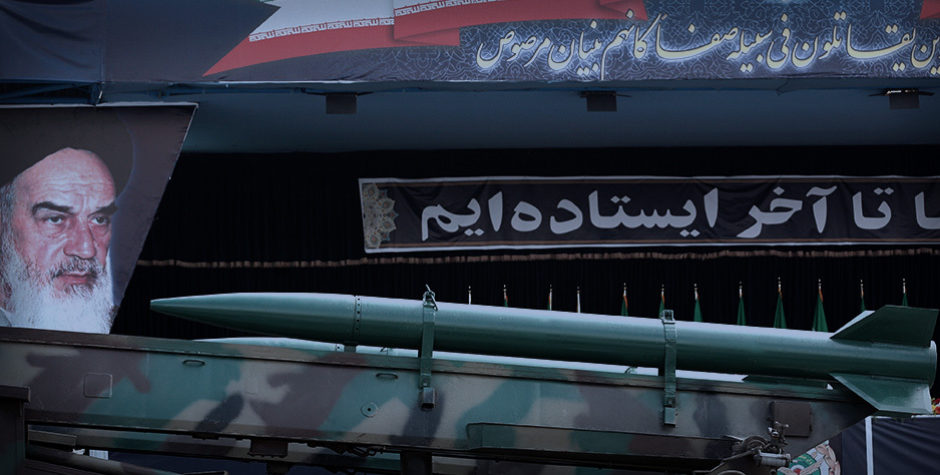The Danger of Arming Iran and the Threat to Middle East Peace
Last Sunday the international arms embargo against Iran expired. When the United States sought to renew the ban on selling or transferring tanks, artillery, fighter planes, and other weapons to this rogue nation (still the world’s leading state sponsor of terrorism), the measure was vetoed by Russia and China at the United Nations Security Council. Eleven other countries abstained from the vote, allowing the embargo to go away. It is further evidence of the tepid response of this international body to countries that export terror, violate human rights, and pose real threats to international order and peace. Ironically, many of these same countries look to the United States to protect them from international terrorism.
There is this important note: The expiration of this embargo was actually a promise made by the Obama-Biden Administration to the Iranian regime. In order to sweeten the JCPOA (Iranian nuclear deal) and to have the Iranians sign on, the previous Administration promised Iran that the embargo would not be renewed. This promise was in addition to making billions of dollars in cash available to Iran and allowing them to begin legally selling oil again.
Oddly enough, the JCPOA was designed not to keep Iran from obtaining nuclear weapons, but rather to simply delay that possibility for ten years. Additionally, U.N. nuclear inspectors were prohibited from inspecting any Iranian military site —the logical place where Iranians would keep weapons or research and development to build these weapons. For these reasons, and many others, the Trump Administration withdrew from the flawed JCPOA.
All of this is a pointed example of the importance of foreign policy and how different political parties view our adversaries and our allies. Iran is the main threat to peace in the Middle East. This realization by the Arab nations in the region is the key reason that they are establishing relations with Israel and see the United States as their most important ally. The Abraham Accords, where Bahrain and the United Arab Emirates established diplomatic relations with Israel, are a direct result of this acknowledgement and the leadership of the United States. Jordan and Egypt already had agreements with Israel, and more countries in the region are expected to follow.
In response to the expired embargo, the United States executed the so-called “snapback” sanctions against Iran. Not only will the United States continue to refuse to sell weapons to Iran, it is the policy of the U.S. to sanction any other nation or business that attempts to sell armaments to Iran. In a statement last Sunday, Secretary of State Mike Pompeo said, “The United States is prepared to use its domestic authorities to sanction any individual or entity that materially contributes to the supply, sale, or transfer of conventional arms to or from Iran.”
This makes perfect sense to both the leaders and the average person of the nations in that part of the world. As reported in the Wall Street Journal, a recent Zogby poll of 4,000 young Arabs between the ages of 18 and 24 found that a large majority saw the United States as being the nation with the most influence in the region and 56% considered America an “ally,” up from 35% a mere two years ago. A large majority supported the Abraham Accords as the “Deal of the Century,” and Arab public opinion is moving to accept the presence of a Jewish state. When interviewed by Walter Russell Mead, National Security Adviser Robert O’Brien stated that in his talks with Arab leaders, they saw better relations with Israel as not only critical to their states’ security—but to their survival as well. Interestingly, Mead reported that the current Arab nightmare is that the next U.S. Administration wouldn’t support Israel enough.
Meanwhile, Iran continues to call for the destruction of Israel and spews venom at the United States of America, the “Great Satan.” The FBI Director and Director of National Intelligence recently detailed how Iran is actually attempting to sow discord and interfere in the upcoming U.S. elections. Through its proxies, Iran has attempted to overthrow the rulers of Bahrain and calls for the overthrow of other nations in the region, including Saudi Arabia. Iran supports the Houthi rebels in Yemen, where thousands of innocents have died. Iran provides training and weapons to Hezbollah and is a chief benefactor of the terror group Hamas. Iran’s major ally and partner in crime? North Korea.
In a speech in 1961, President John Kennedy quoted Edmund Burke who said, “The only thing necessary for the triumph of evil is for good men to do nothing.” That warning rings truer today than ever. There must be a united international stance to counter the toxic and malign designs of Iran’s leaders; we must also pray for the Iranian citizens who live under this oppressive regime—many of them in prison—and never forget those who have died because of their thirst for freedom and justice.
